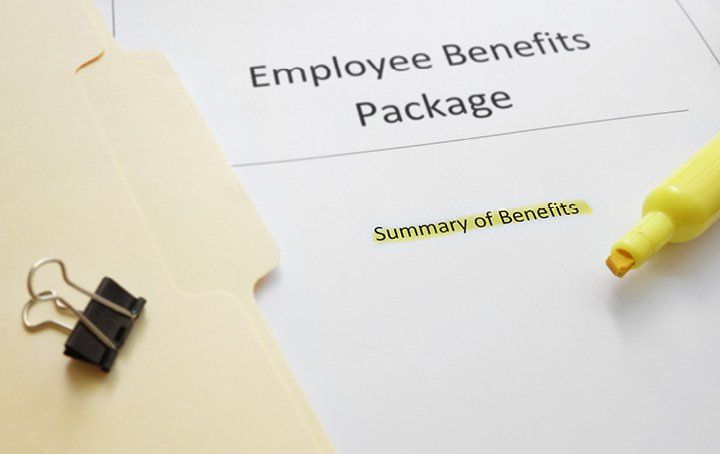
Employers that provide certain fringe benefits to their employees can soon use appropriate alternative statutory evidentiary documents to satisfy FBT requirements with the passing of legislation reduce FBT compliance costs for employers. Under the FBT law, employees are required to provide information to employers about fringe benefits received, and employers are required to prepare declarations in a form approved by the Commissioner. As a part of record keeping obligations, information and declarations are required to be kept for 5 years and the ATO may request these records for compliance purposes at any time.
On the ATO website, there are some 20 different approved employee declarations for various fringe benefits including expense payment fringe benefits, living-away-from-home allowance (LAFHA) fringe benefits, property fringe benefits, residual benefits, loan benefits, car and fuel, holiday transport, temporary accommodation, and relocation. In addition to approved employee declarations, there are also two employer declarations and a travel diary requirement currently used as statutory evidentiary documents for FBT purposes.
This current requirement for certain records to be in ATO approved form to comply with FBT record keeping obligations means that some employees and employers may be forced to create additional records despite the required information already captured through other processes such as corporate records. From 1 July 2023, employers will have the option to rely on existing or other alternative records as determined by the Commissioner by way of legislative instrument. However, the new legislation does not change or reduce the information employers need to hold or support their FBT return, and only alters the prescriptive format and processes for obtaining and holding that information.
While the option to use alternative records will generally reduce the FBT record keeping burden for employers, the Commissioner will not necessarily specify alternative record keeping options for all available fringe benefits or situations. Where records are extensively defined within legislation such as log books or odometer records, employers will need to continue to meet their record obligations under current arrangements, although the legislation has flagged that technological advances into the future may result in alternate records being adequate as considered by the ATO.
Thus far, the ATO has released four draft legislative instruments on acceptable alternatives to statutory evidentiary documents that were all set to apply from 1 April 2023. They are all currently in draft form pending appropriate consultation. The draft instruments relate to overseas employment holiday transport, car travel to employment interviews or selection tests, remote area holiday transport, and car travel to certain work-related activities. They outline the specific information required for an alternative record to be acceptable in each FBT category.
For instance, the record will need to be in English and will need to contain names of employees/associates, make and model of car, address of departure/arrival location, dates of travel, number of whole kilometres travelled, to name a few. Each draft legislative instrument outlines the years of tax, the classes of persons and the classes of statutory evidentiary documents or records an employer may use to satisfy their alternative record keeping obligations.
In circumstances where the Commissioner is not "reasonably" satisfied that adequate alternative records are available for certain fringe benefits, employers will be expected to continue using existing approved forms to ensure that statutory evidentiary documents that meet record-keeping obligations are retained.
Want to find out more?
If you'd like to stay up-to-date on adequate alternative statutory evidentiary documents to satisfy FBT requirements that may save your business money on record-keeping, contact us today for expert help and advice.
Please also note that many of the comments in this publication are general in nature and anyone intending to apply the information to practical circumstances should seek professional advice to independently verify their interpretation and the information’s applicability to their particular circumstances. Should you have any further questions, please email us at RGA Business and Tax Accountants at reception@rgaaccounting.com.au . All rights reserved. Brought to you by RGA Business and Tax Accountants. Liability Limited by a scheme approved under Professional Standards Legislation.















